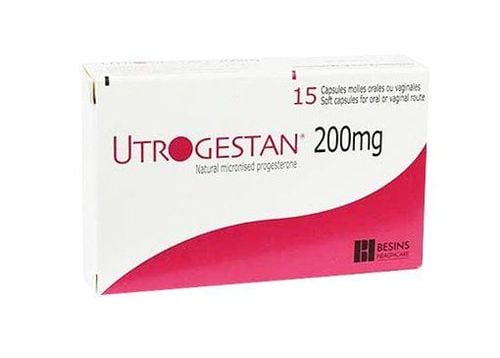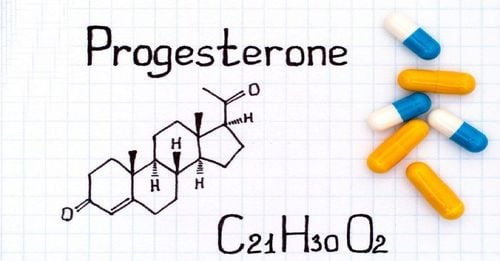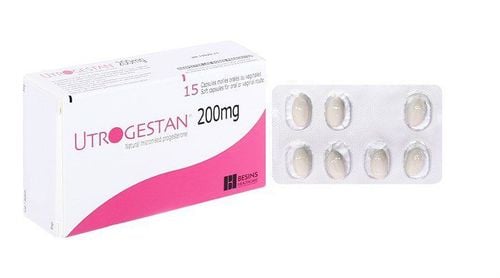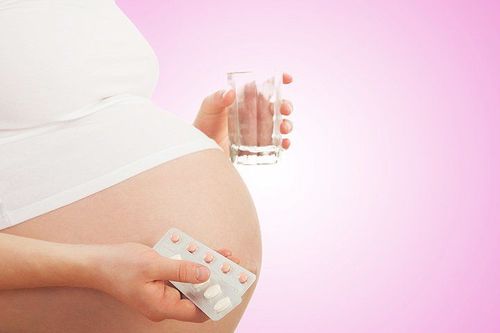This is an automatically translated article.
The hormonal changes of the menstrual cycle have caused women to "change" continuously, affecting both physical and temperament, within just 1 month. But the good news is that you can regulate the rise and fall of estrogen and progesterone by being active.
1. Overview of the menstrual cycle
Menstruation is the shedding of the lining of the uterus (endometrium) accompanied by bleeding, which occurs on a monthly basis throughout a woman's reproductive life, except during pregnancy. Menstruation begins at puberty and stops permanently at menopause.
By definition, a menstrual cycle begins on the first day of bleeding, is counted as day 1, and ends immediately before the next period. A normal menstrual cycle is about 25-36 days long, only 10-15% of women have an exact 28-day cycle. In addition, at least 20% of women have irregular periods, that is, longer or shorter than usual. Usually, the longest cycles (menorrhagia) occur during the early years of menarche (puberty) and before menopause.

Chu kỳ kinh nguyệt thường bắt đầu khi con gái đến tuổi dậy thì
Trắc nghiệm: Sự hiểu biết của bạn về kinh nguyệt
Kinh nguyệt có vai trò quan trọng đối với sức khỏe sinh sản, do đó nữ giới cần chủ động trang bị kiến thức để theo dõi và kiểm soát tình trạng sức khỏe. Bài trắc nghiệm sau đây sẽ giúp bạn hiểu hơn về chu kỳ kinh nguyệt của bản thân.2. Changes in the menstrual cycle
Hormonal changes - including estrogen , progesterone and testosterone , during the menstrual cycle are one of the factors that control every action and thought of a woman. Specifically as follows:
Days 1-7: Estrogen and progesterone decrease The menstrual cycle begins with menstrual bleeding, marking the first day of the follicular phase. Low levels of estrogen and progesterone cause the top layers of the uterine lining to thicken, break down, and shed, causing menstrual bleeding.
During this phase, the body produces a lot of prostaglandin hormones that cause menstrual pain. The increase of estrogen also suppresses appetite, causing women to "come on" often not eating well. Blood loss also puts you at risk of iron deficiency, so you should eat green leafy vegetables, like watercress, kale, or take an iron supplement.
Days 8-14: Estrogen and testosterone reach their peak Ovulation phase begins with an increase in the levels of luteinizing hormone and follicle-stimulating hormone. Luteinizing hormone stimulates the release of an egg (ovulation), which usually occurs 16 - 32 hours after proliferation begins.
The level of female hormones continues to increase making you feel happy, optimistic and feel more confident about your appearance and attractiveness. In addition, the increase in testosterone hormone also makes women feel more "manly", that is, strong in daily life and have a high sex drive, easy to reach orgasm. However, this hormone will produce a lot of oil, so women need to pay attention to skin care to avoid clogging pores and causing acne during this period. Days 15-22: Progesterone increases, estrogen and testosterone are halved, then estrogen rises again. This is called the post-ovulatory luteal phase, and levels of luteinizing hormone and follicle-stimulating hormone decrease. The ruptured follicle closes and forms the corpus luteum, which produces progesterone. Progesterone and estrogen make the lining of the uterus thicker, in preparation for fertilization.
Increased levels of progesterone make you sleepy and less active, libido also decreases, while appetite increases. This hormone can also make women "brain goldfish", prone to skin inflammation and acne.
At this stage, women need to eat a lot of fruits and vegetables, and drink a lot of water. If you feel stressed, you can exercise but do not last more than 40 minutes. Too much physical activity during this period will cause stress levels of cortisol to rise.
Days 23 - 28: Estrogen and progesterone will drop suddenly If the egg is not fertilized, the corpus luteum will degenerate and no longer produce progesterone, estrogen levels drop, the top layers of the lining are broken down and released , then menstrual blood appears to start a new menstrual cycle. Conversely, when the egg is fertilized, the corpus luteum continues to function during early pregnancy, helping to maintain the pregnancy.
Before menstruation, the decrease in estrogen will deplete neurotransmitter chemicals in the brain, making many women feel moody, irritable and have negative thoughts. In fact, up to 30-80% of women of reproductive age are affected by PMS.
It is quite common to experience both physical and mental changes in the days leading up to your period. Women's bodies also store more water, making them feel bloated, sleepy and lifeless. Hormonal changes also make the body sensitive to insulin, making you more susceptible to low blood sugar and cravings for sweets.
At this stage, ladies, treat yourself to a good movie, go for a relaxing walk or do your own hobbies. Thanks to that, the happy hormone in the brain is activated, which will help you to be calmer and more optimistic.
Experts advise women to keep track of their thoughts and feelings through a diary, so that the mood swings associated with the menstrual cycle are temporary and have appropriate control. . Increased self-care - especially before and during your period, will also help. Exercising hard, reducing red meat consumption, drinking alcohol or smoking can also reduce menstrual-related disorders. Finally, try to avoid stressful situations and practice relaxation techniques, like yoga, meditation, or aromatherapy.

Phụ nữ nên thư giãn giảm thiểu căng thẳng trước và trong mỗi kì kinh nguyệt
To help customers detect and treat gynecological diseases early, Vinmec International General Hospital has a basic gynecological examination and screening package, helping customers detect early inflammatory diseases and help treat Easy, inexpensive treatment. Screening detects gynecological cancer (cervical cancer) early even when there are no symptoms.
Basic gynecological examination and screening package for female customers, has no age limit and may have the following symptoms:
Abnormal vaginal bleeding Having menstrual problems: irregular menstrual cycle, irregular menstrual cycle Irregular vaginal discharge (smell, different color) Vaginal pain and itching Female clients have several risk factors such as poor personal hygiene, Unsafe sex, abortion,... Female customers have other symptoms such as: Abnormal vaginal discharge, itching, pain in the private area, abnormal vaginal bleeding.
Please dial HOTLINE for more information or register for an appointment HERE. Download MyVinmec app to make appointments faster and to manage your bookings easily.
Reference source: msdmanuals.com; healthline.com












